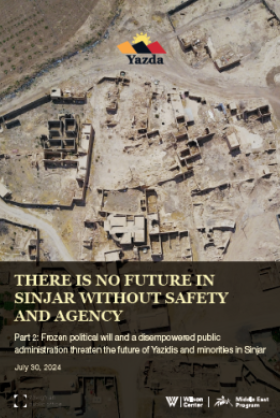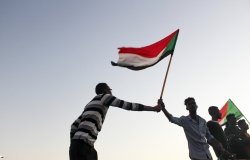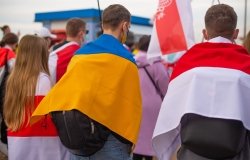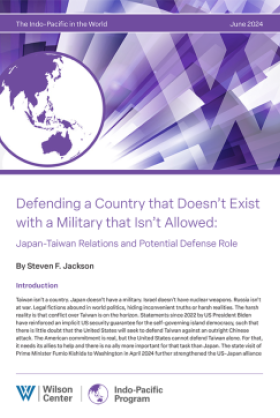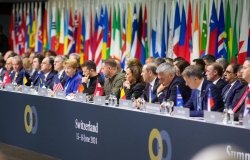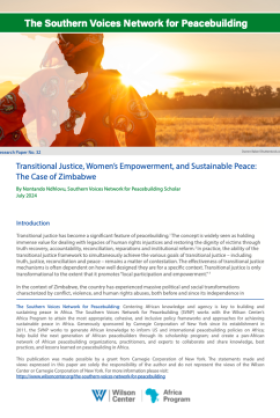America and the Peace Process: A View from the Region
Nabil Fahmy, Dean, School of Public Affairs, American University in Cairo, and former Ambassador of the Arab Republic of Egypt to the United States; Marwan Muasher, Vice President for Studies, Carnegie Endowment for International Peace, and former Ambassador of Jordan to the United States and Deputy Prime Minister; Ephraim Sneh, Chairman, S. Daniel Abraham Center for Strategic Dialogue, Netanya Academic College and former member of the Knesset, and Deputy Defense Minister; Moderator Aaron David Miller, Public Policy Scholar, Woodrow Wilson Center
Overview
Israeli-Palestinian negotiations remain at an impasse despite the Obama Administration's commitment to resolving the issue. The process is poised somewhere between breakthrough and breakdown. As Aaron David Miller discussed at a recent event at the Wilson Center, the United States inherited a difficult set of circumstances regarding domestic politics in Israel and the Palestinian territories and deep mistrust between the parties. Obama's team has been unable to successfully compensate for these limitations, and the window seems to be closing on a resolution in the near term. As Miller and a panel of experts agreed, the U.S. role remains essential and fundamental changes in America's approach are necessary.
On October 29, 2010 the Middle East Program hosted a panel discussion entitled "America and the Peace Process: A View from the Region" with Nabil Fahmy, Dean of the School of Public Affairs at American University in Cairo and former Ambassador of the Arab Republic of Egypt to the United States; Marwan Muasher, Vice President for Studies at the Carnegie Endowment for International Peace and former Ambassador of Jordan to the United States and Deputy Prime Minister; and Ephraim Sneh, Chairman of the S. Daniel Abraham Center for Strategic Dialogue at Netanya Academic College and former member of the Knesset and Deputy Defense Minister. Miller, Public Policy Scholar at the Woodrow Wilson Center, moderated the event. Haleh Esfandiari, Director of the Middle East Program at the Woodrow Wilson Center, provided introductory remarks.
Fahmy asserted that America must continue with the present negotiations since the Palestinian and Israeli governments are currently unable to achieve peace alone. Though a peace process hardly exists, he remarked, we should not "let it die." Yet given the state of play, changes in the approach must be made. Fahmy recommended expanding the process internationally by bringing all relevant actors into the game. Doing so reduces the risks to the main stakeholders and increases the incentive to continue. For instance, Israel would gain normalization of relations with the Arab world. He also suggested the Quartet (the U.S., Russia, E.U., and U.N.) should develop a package of parameters outlining its interpretation of a solution. Fahmy indicated that, even if these talks fail, there would be a solid set of parameters to return to in future talks if such efforts were made.
Citing the U.S. penchant for valuing process over substance, Muasher also evinced that the United States was essential but needed to change its approach. He emphasized that time is not on the two-state solution's side. Like Fahmy, he backed the regional approach because it serves both sides' interests. He pointed out that including the Arab states would give the Palestinians an Arab cover and would spread around the responsibility of peace and the role of militant groups Hamas and Hezbollah. Finally, Muasher said the United States needs to work to establish a clear picture of a resolution and gather international commitments to its version of an "end game." If the United States receives these "deposits," he said it would be difficult for Israeli Prime Minister Benjamin Netanyahu to resist domestic pressure to accept.
Sneh recommended a "joint strategy" between the United States and Israel toward Iran so that Netanyahu may more easily convince his people of the viability and urgency of a peace settlement. Sneh said he did not believe that the chance for a resolution is gone but that Palestinian division poses a great challenge. He proposed that America help draft an action plan for Gaza. Sneh concluded his remarks by voicing his belief that peace talks would benefit from U.S. assurances of Israeli security against an Iranian nuclear threat.
By Luke Hagberg, Middle East Program
Haleh Esfandiari, Middle East Program
Hosted By

Middle East Program
The Wilson Center’s Middle East Program serves as a crucial resource for the policymaking community and beyond, providing analyses and research that helps inform US foreign policymaking, stimulates public debate, and expands knowledge about issues in the wider Middle East and North Africa (MENA) region. Read more
Thank you for your interest in this event. Please send any feedback or questions to our Events staff.



